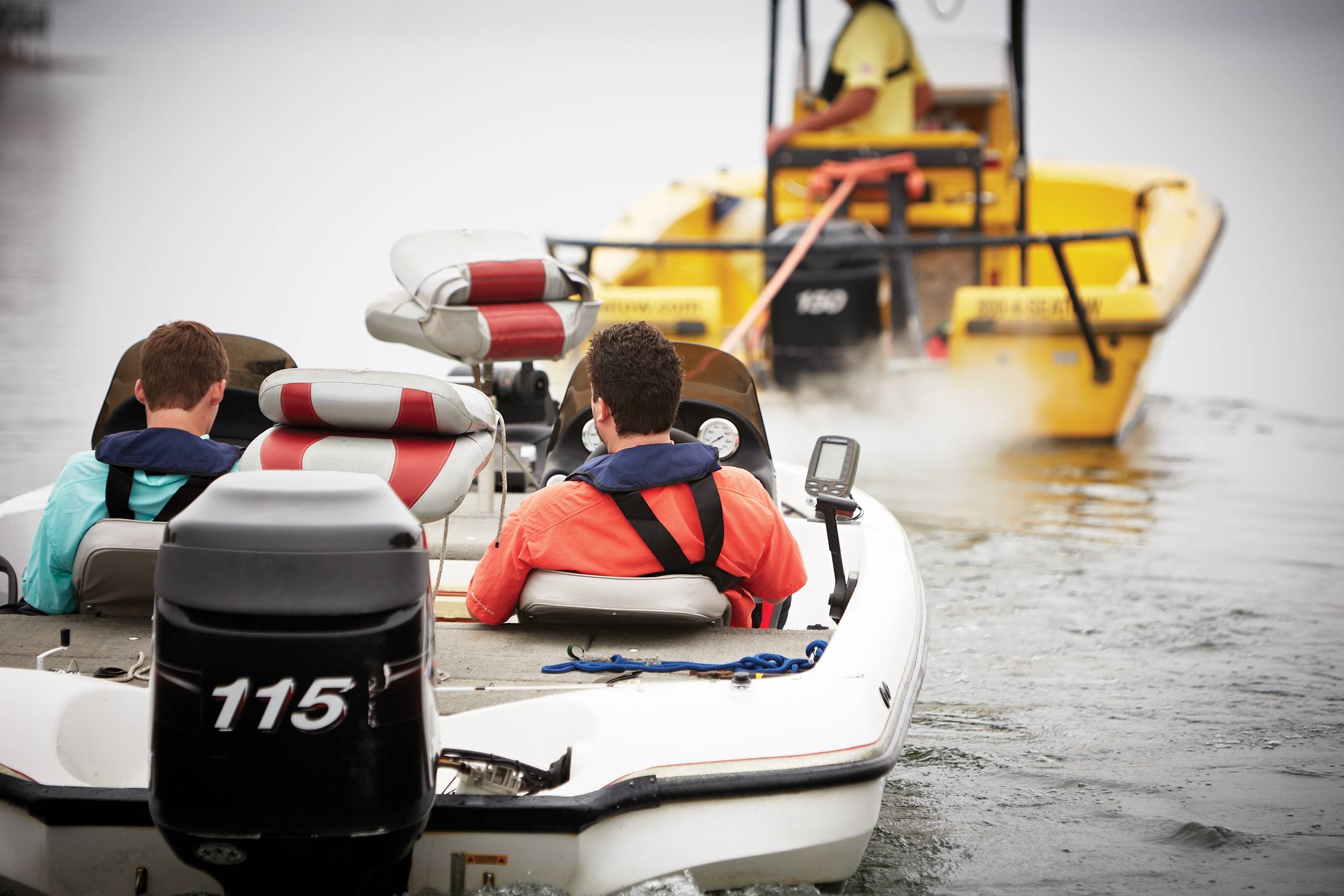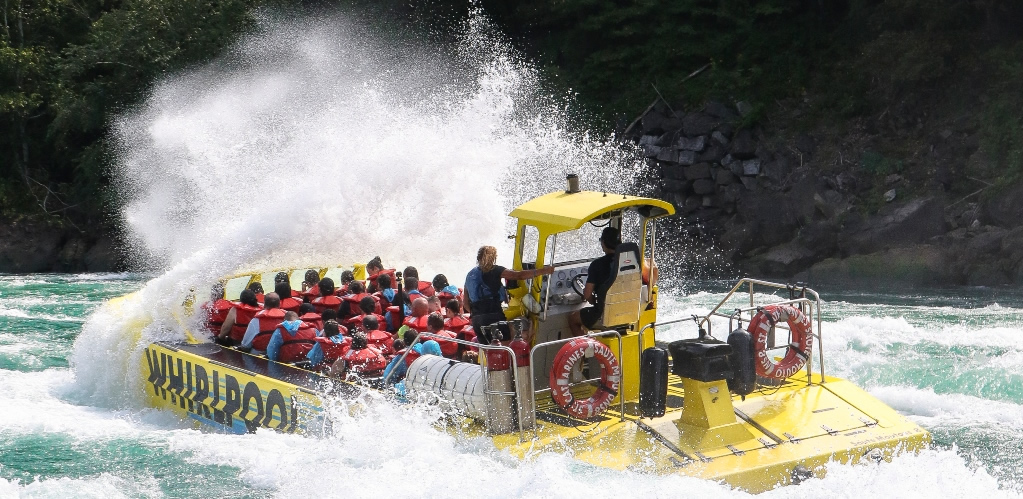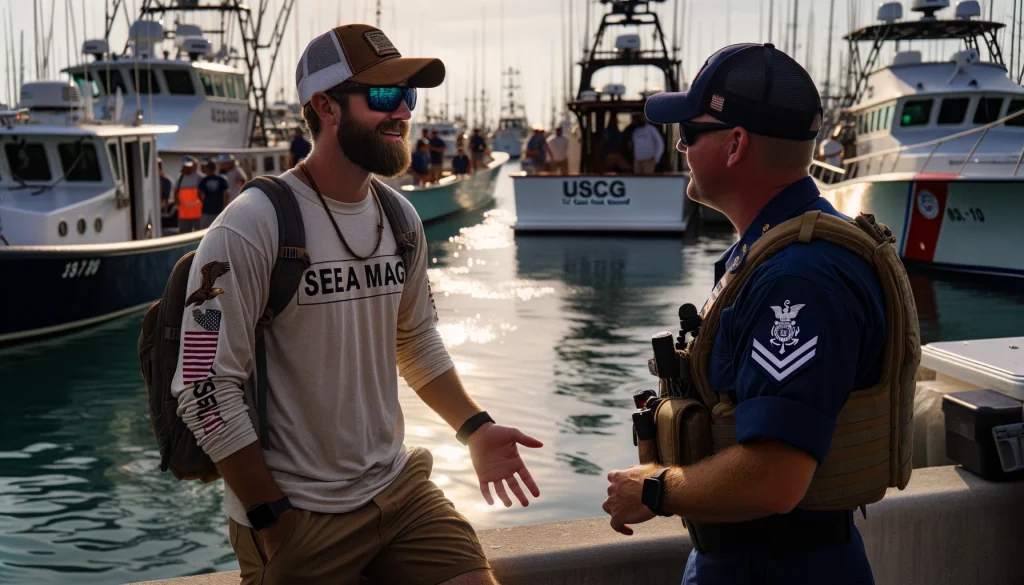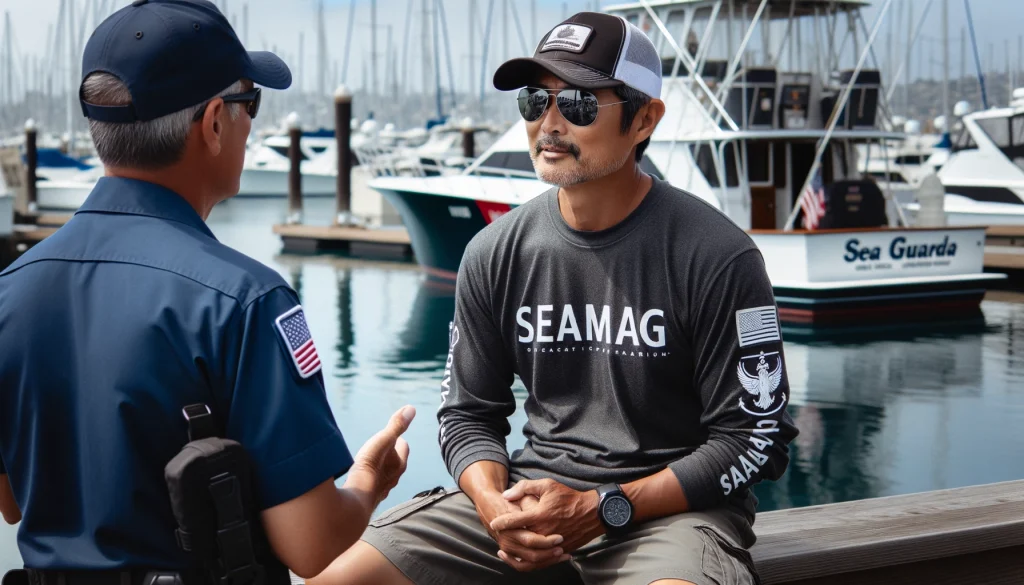Michigan Boating License: Essential Steps and Requirements
Michigan is home to various beautiful waterways, making it an attractive destination for boating enthusiasts. The state requires most personal watercraft operators to obtain a boat safety certificate instead of a boating license. To acquire this certificate, individuals must complete a boater safety course approved by the Michigan Department of Natural Resources (DNR) 1.
Motorized boat operators born after June 30, 1996, are mandated by law to pass a boater safety course, which is available online, and carry a boater education card 2. Also, all watercraft in the state, including those on privately owned lakes and waterways, must be registered with a few exceptions 3. Ensuring adherence to these requirements aids in promoting safer boating practices and protects Michigan's water resources.

Key Takeaways
- A boat safety certificate is required for most personal watercraft operators in Michigan
- Motorized boat operators born after June 30, 1996, must pass a boater safety course and carry a boater education card
- Most watercraft, including those on privately owned lakes, must be registered
Understanding Michigan Boating License
Michigan has specific regulations when it comes to boating, particularly for those born after July 1, 1996. While there isn't a traditional "boating license" in the state, boaters need to obtain a boating safety certificate, which ensures that they are familiar with Michigan's boating laws and safe vessel operation guidelines.
It is essential to educate oneself on Michigan boating requirements before heading out on the water. Taking a boating safety course, such as the one offered on boat-ed.com, is a great way to learn the necessary information. This course covers various topics such as navigation, legal requirements, and emergency procedures.

In Michigan, a boating safety certificate is not the only requirement for operating watercraft. Boat owners must also have their vessels registered, with all registrations expiring on March 31 in the third year of issuance. Moreover, boat trailers need to be licensed and registered as well. This helps to ensure that all vessels on Michigan's waterways are safe and accounted for.
Adherence to these legal and safety regulations is crucial for all boaters to maintain order and safety on Michigan's waters. Therefore, understanding the requirements for obtaining a Michigan boating safety certificate and adequately registering essential equipment ensures compliance with state laws and encourages responsible boating practices.
Requirements and Regulations
Boating Laws and Regulations
In Michigan, boating laws and regulations are enforced to ensure safety and order on the water. All watercraft, unless exempt, must be registered with the Michigan Department of State and display a registration decal. Registrations expire on March 31 in the third year of issuance1. It's important to note that while drivers must have a license issued by the Secretary of State for operating motor vehicles, there is no comparable boating license requirement for Michigan residents2.

Safety Standards
A boating safety certificate is required for boaters born after July 1, 1996, in Michigan2. There is no minimum boating license age requirement to obtain a safety certificate, meaning boaters of all ages can do so if they wish3. All boat operators should be familiar with Michigan's boating laws, as outlined in the Handbook of Michigan Boating Laws and Responsibilities, which covers important topics such as life jackets, navigation rules, and boating under the influence.
Among the safety regulations, Michigan also has specific requirements for boat trailers, which must be licensed and registered if the gross weight of the vessel and trailer exceeds 3,000 pounds4.
Motorized and Non-Motorized Watercraft
Michigan boating laws apply to both motorized and non-motorized watercraft. Regulations extend to different types of vessels, including motorized boats, personal watercraft (such as wave runners or jet skis), non-motorized canoes, and kayaks1.
By adhering to these regulations and safety standards, boaters in Michigan can contribute to creating a safe environment and enjoyable experiences for everyone on the water.

Boating Safety Education
Boaters Safety Course
In Michigan, boater safety education is essential for individuals born after June 30, 1996, and most personal watercraft operators. The boaters safety course is designed to provide knowledge on topics such as navigation rules, boating laws, and safety equipment requirements. Opting for a course approved by the National Association of State Boating Law Administrators (NASBLA) ensures the material meets the highest standards, which ultimately benefits the course participants.
There are online courses available, such as Boat-Ed and AceBoater.com, where individuals can study at their own pace and take the final exam to earn their boating safety certificate. These courses are designed to be engaging and interactive, making the learning process enjoyable while enhancing the retention of essential information.
Obtaining Boating Safety Certificate
Upon successful completion of the boaters safety course and passing the final exam, participants can obtain their Michigan boating safety certificate. Online providers like Boat-Ed allow users to print their permanent boating safety certificate right away, ensuring they can legally operate a vessel in the state. There are also classroom-based courses available for those who prefer a traditional learning environment. Michigan's Department of Natural Resources offers a list of classroom-based boater safety education courses.
It is crucial to remember that possessing a boating safety certificate is a responsibility and a legal requirement for certain watercraft operators in Michigan. Taking the course seriously and applying the knowledge acquired on the water will contribute to a safer boating experience for everyone.

Administration and Enforcement
Department of Natural Resources
The Department of Natural Resources (DNR) plays a significant role in administering and enforcing boating regulations in Michigan. One of the primary responsibilities of the DNR is to oversee the issuance of boating safety certificates. Any motorized boat operator born after June 30, 1996, is required by law to pass a boater safety course and carry a boater education card. Additionally, boater education is required for all Personal Watercraft (PWC) operators born after December 31, 1978.
Coast Guard
The United States Coast Guard is responsible for enforcing federal boating laws and ensuring the safe operation of vessels on navigable waters. This includes conducting safety checks, providing boating education, and responding to emergencies on the water. The Coast Guard works in collaboration with the Michigan DNR, providing additional support and resources to maintain the safety of Michigan's waterways.
Secretary of State
While the Michigan Secretary of State is responsible for issuing driver's licenses for operating motor vehicles, there is no comparable boating license requirement under Michigan law. However, as mentioned earlier, boaters born after July 1, 1996, are required to obtain a boating safety certificate to legally operate a motorized boat. This distinction is important for boaters to understand, as the requirements and enforcement for motor vehicle operation differ from those for boating in Michigan.

Boating Access and Facilities
Michigan Waterways
Michigan offers a vast network of waterways, including over 1,300 public boating access sites. The state's waterways provide boaters with numerous opportunities for cruising, fishing, and recreational activities. These sites are administered by state, county, and local units of government, ensuring that boaters have well-maintained and accessible boating facilities. The Michigan's Recreational Boating Information System (MRBIS) is a valuable resource for locating and mapping boating access sites across the state.
Harbors and Fuel Stations
When planning a boating trip in Michigan, it is essential to know about the available harbors and fuel stations. There are over 80 harbors and marinas throughout the state providing necessary services for boaters. These facilities offer fuel, transient slips, and other amenities for the convenience of boaters.
Some key features of Michigan harbors and fuel stations include:
- Fuel availability: Most harbors and marinas in Michigan provide fuel services for boaters with well-stocked fuel stations.
- Transient slips: These temporary mooring spaces allow boaters to stop and enjoy the local amenities or take a break before continuing their journey.
- Well-maintained facilities: Michigan harbors and marinas are maintained by various government units, ensuring clean and safe facilities for boaters.
It is important to plan your boating activities carefully, taking into consideration the locations of harbors and fuel stations in Michigan. The MRBIS website can help boaters to locate these facilities for a smooth and enjoyable boating experience in Michigan's waterways.

Boating Activities
Water Skiing
Water skiing is a popular and thrilling activity for Michigan boaters. Those who wish to engage in water skiing should prioritize safety measures and follow the Michigan Boating Laws and Regulations. It is essential to have a certified boat operator born after June 30, 1996, as they are required by law to pass a boater safety course and carry a boater education card.
When water skiing, it is crucial to maintain proper communication between the boat operator, spotter, and skier. Hand signals can help ensure clear communication among all parties. Additionally, wearing a life jacket is vital, as it provides buoyancy and support in case of a fall or accident.
Fishing
Michigan offers a wide array of fishing opportunities for boating enthusiasts. The state is home to various fish species, including walleye, bass, and trout. Those wishing to fish on their boat should first ensure that they possess a valid Michigan fishing license.
It is important to follow Michigan's fishing regulations, such as adhering to size and bag limits for each species. Anglers can consult the Michigan Fishing Guide for specific details on these regulations.
When preparing for a fishing trip, it is essential to equip your boat with the proper gear, such as fishing rods, tackle, and a live well or cooler for storing the catch. Consider using a fish finder to increase your chances of locating fish, and always practice safe boating techniques while on the water.

Boating Emergencies and Precautions
Personal Flotation Devices
Personal flotation devices (PFDs) are essential for ensuring safety on the water. In Michigan, all boats must carry one PFD for each person on board, and children under six years old must wear an approved, properly fitting PFD at all times while on a boat. PFDs come in various types and sizes, so choose a suitable device for each individual's specific needs and activities. Regularly check PFDs for wear and tear, and replace them if needed.
Dealing with Emergencies
In case of boating emergencies, knowing what to do and how to react is crucial. Establish a clear emergency plan, and ensure everyone on board understands it. A few key emergency situations to be prepared for include:
- Man Overboard: Immediately throw a flotation device and keep a constant visual on the person in the water. Slowly approach them from downwind with the engine off while maintaining safe distance.
- Capsizing: Stay with the boat for support, and if possible, re-enter the boat or get on top of the capsized hull. Use a signaling device to call for help.
- Fire Onboard: Quickly turn off the engine and electrical system. Aim a fire extinguisher at the base of the flames and use sweeping motions until the fire is out.
- Collision: It is essential to minimize damage by shifting your boat's direction and avoiding direct impact. After the collision, assess the damage and attend to any injured individuals. Report the incident as required by Michigan's legal requirements.
In any boating emergency, try to stay calm and focus on problem solving. Make sure to have necessary safety equipment on board, such as a whistle, flashlight, and VHF marine radio. These tools can be invaluable in keeping the situation under control and alerting others to provide assistance. For more detailed information about coping with boating emergencies, the Michigan Boat Ed Course is a valuable resource.

Frequently Asked Questions
What is the minimum age to obtain a boating license in Michigan?
There isn't a minimum age to obtain a boating license in Michigan, as the state only requires a boating safety certificate for boaters born after June 30, 1996. The certificate acts as proof of having passed a boating safety course.
What are the requirements for a boat license in Michigan?
Michigan does not issue boating licenses, but a boating safety certificate is required for boaters born after June 30, 1996. To obtain the certificate, individuals must complete a boating safety course either online, in-person, or through a home study program.
Is a license required for driving a boat in Michigan?
A license is not required for driving a boat in Michigan. However, a boating safety certificate is required for boaters born after July 1, 1996.
How can I look up my Michigan boaters license?
Since there isn't a boating license in Michigan, you would need to look up your boating safety certificate instead. If you have lost or misplaced your certificate, you can usually obtain a replacement by contacting the organization through which you completed the course.
Where can I find a free boaters safety course in Michigan?
Free boaters safety courses may not be readily available in Michigan. Most courses, whether online or in-person, usually require a fee. Online options like Boat-Ed offer state-approved courses for a fee, which includes the cost of the exam and materials.
How long does it take to complete the Michigan boaters safety course?
The duration of the Michigan boaters safety course varies depending on the method of taking the course. Online courses allow you to learn at your own pace, whereas classroom courses may take a few hours to a couple of days to complete. Ultimately, the time it takes to complete the course depends on one's commitment and understanding of the material.

Q&A USCG
Charlie: Good morning, Robert. Today, we're focusing on the process of obtaining a Michigan boating license. Can you shed some light on this?
Robert: Certainly, Charlie. In Michigan, anyone born on or after July 1, 1996, must successfully complete an approved boating safety course to operate a boat powered by a motor of more than 6 horsepower. And those born after December 31, 1978, must do the same to operate a jet ski.
Charlie: What about the boating education cards?
Robert: After successfully completing the course, you receive a Michigan Boater Education Card, often called a boating license. It's important to recognize that this card is not a one-time license but a proof of your boating education.
Charlie: Are there any online courses available?
Robert: Yes, there are several online courses approved by the Michigan Department of Natural Resources. They cover all the education requirements, and after completion, you'll need to pass an online exam to receive your education card.
Charlie: What if someone loses their card or it gets destroyed?
Robert: Lost or damaged documents, like a destroyed boating safety certificate, can be replaced. It's important to have your boating education card with you when boating, as it's required to boat legally in Michigan waters.
Charlie: Are there temporary licenses or any age or operator restrictions?
Robert: Temporary boating licenses are not typically issued. The minimum age requirement to operate a boat is 14 years, but operators aged 14 and 15 must be directly supervised by a parent or legal guardian. For jet skis, the minimum age is 16, unless the operator has a boating education card and is directly supervised.
Charlie: What about visitors to Michigan? Do they need a Michigan Boater Education Card?
Robert: Visiting boaters can operate a boat if they have a boating safety certificate from their state that meets Transport Canada's requirements. Michigan recognizes boating education cards from other states.
Charlie: How does this relate to boating accidents?
Robert: Education significantly reduces the risk of accidents. Knowing how to operate a boat powered by a motor and understanding the operator restrictions are crucial for everyone's safety.
Charlie: Does having a boating license affect boat insurance?
Robert: Many insurance companies offer discounts to boaters who have completed a boating safety course. It’s seen as a responsible step towards on-water adventures relaxing and exploring carefree.
Charlie: Finally, what's the significance of the Natural Resources logo on the education card?
Robert: The logo signifies course approval and that the cardholder has met all Michigan's boating education requirements. It's a mark of a responsible and legally compliant boater.
Charlie: Speaking of the Michigan boat license, can individuals from other countries boat in Michigan waters if they meet Transport Canada's requirements?
Robert: Yes, international visitors who have a boating safety certificate that meets Transport Canada's requirements can legally operate a motorized vessel in Michigan. However, it's always good to check specific agreements or treaties between countries.
Charlie: How popular are online courses compared to in-person training for boating education?

Robert: Online courses have become increasingly popular, especially for their convenience and flexibility. They allow boaters to complete the necessary education at their own pace, which is a great advantage.
Charlie: After successfully completing an online course, how soon can someone start boating?
Robert: Once you have successfully completed an online course and passed the exam, you can start boating immediately. The certificate you receive can be used as a temporary proof until your official boating education card arrives.
Charlie: Finally, would you say that having a boating license enhances the experience of exploring Michigan's lakes and rivers?
Robert: Absolutely. Having a Michigan boat license signifies that you have the knowledge to safely operate a motorized vessel. This education ensures that you and others can explore Michigan's beautiful waters carefree, with safety as a top priority. Michigan department of natural resourceswill recognize boating education cards, temporary boating license, explore carefree what Michigan has to offer.
Charlie: Thank you, Robert, for your time and the valuable information.
Robert: My pleasure, Charlie. Remember, safe boating is not just following the law but also respecting the water and those who share it with you.
Footnotes
- https://www.michigan.gov/dnr/things-to-do/boating/rules-and-regs ↩ ↩2
- https://callsam.com/blog/michigan-boating-license-requirements/ ↩ ↩2
- https://www.dmv.com/mi/michigan/boating-license ↩
- https://www.clickondetroit.com/news/michigan/2022/05/24/a-guide-to-michigans-boating-laws-what-you-need-to-know/ ↩
Charlie is Editor-in-Chief of Sea Magazine